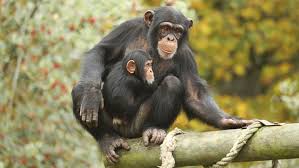Humans are naturally adept at recognizing faces and remembering those faces from a very young age. Newborns show interest in seeing faces and as they grow older, their ability to remember faces becomes more sophisticated. Face recognition is often characterized by holistic processing, where the brain looks at and remembers faces as a whole rather than focusing on individual features. Let us tell you that humans are known for their ability to remember people and relationships for a long time, but you will be surprised to know that apes have this ability better than us.

Memory was better despite being separated for 26 years
A recent study published in the Proceedings of the National Academy of Sciences has revealed interesting findings, which states that chimpanzees and bonobos have an amazing ability to recognize familiar faces even after being separated for 26 years. Through an eye-tracking test, the researchers observed that apes have an amazing ability to remember and recognise faces. In particular, the duration of their gaze appears to be correlated with the quality of their previous relationships, with longer gazes directed at people they were close to. This is surprising because the length and nature of this social memory is similar to our own human long-term memory.

Humans evolved from apes
These findings support the notion that humans have evolved from apes as their ancestors, and that their ability to remember evolved from chimpanzees and bonobos, which likely evolved from a common ancestor millions of years ago. Dr Laura Lewis, first author of the research, who works at the University of California, Berkeley, told The Guardian, “These results represent some of the longest long-term memories ever found in non-human animals. This is also one of the first studies to show that apes’ memories can be shaped by their social relationships.”




